Alev Lenz on composing for Black Mirror and creating a sample library from her new album
We talk to Alev Lenz about the process of her own work and her soundtracking work, as well as the interesting mechanics of the release of her latest album 3.
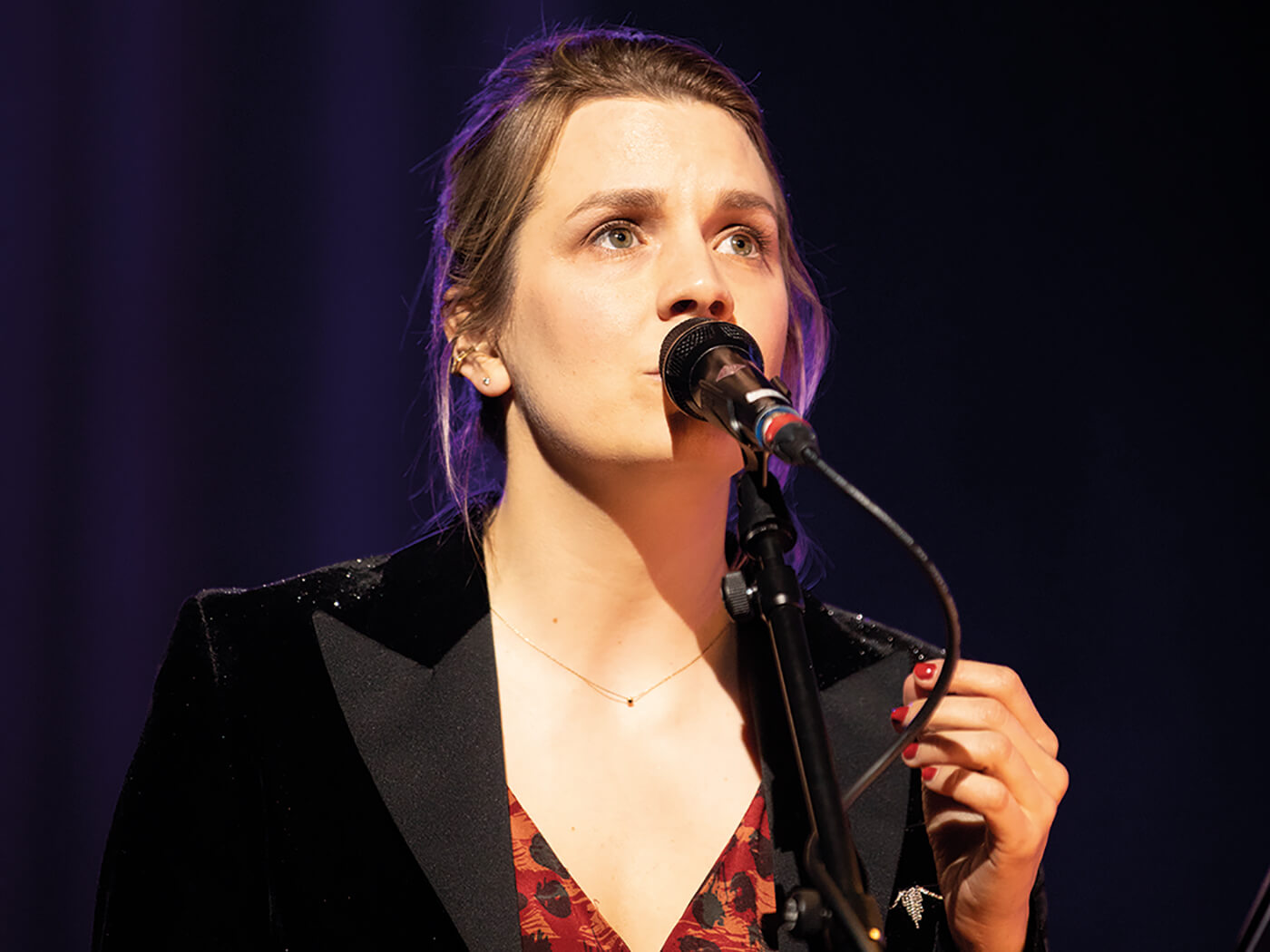
The latest record from German-Turkish songwriter, producer and composer Alev Lenz is a veritable feast for the ears in its own right, harnessing her remarkably dexterous vocals to craft some sensorially beautiful music. But one of the most unique things about the record is the fact that Lenz has released a collection of patches of the building blocks used to create the album, allowing others to utilise her unique sonic character in various formations.
Released on Spitfire Audio’s SA Recordings, the album is the first in what the acclaimed software instrument company intends to be a whole new series of unique sample libraries that will be released in conjunction with their artists’ album releases, but here and now, Alev’s 3 is the unique standard bearer for this approach. Alev speaks to us about the journey to her third record, and rethinking the concept of an album release.
MT: Hi Alev, firstly, how did your interest in music-making begin and how did that lead to a career in the industry?
AL: I wanted to be on stage from a young age, my mother is an actress and that probably had an effect on that. I wanted to dance ballet when I was younger and obviously there was music involved with that. To this day I love the sound of the live piano when people are practising ballet. It’s a very particular sound. I often wonder if that was the first little step that I didn’t even notice to embracing music creatively.
I just experimented as I grew older, and started singing in a band when I was around 14. I learned from the people around me, how to write songs and how to craft lyrics. I slowly formed my own identity. You pick up so much from being in rehearsal rooms with other musicians, and going on tour with them. But the choices you make about what to take on board define you as an artist.
MT: When track-building, which elements tend to originate first? Is there a standard approach?
AL: Usually there’s a topic or a theme that I want to explore. Most of the time there’s at least a little lyric or a line or something that I want to communicate.
Often I’ll have a melody in my head and craft around it. But once something has sort of found its form, it’s time to step back. So generally there’s something that I want to communicate as a starting point, but like I say, I’ll just play around with it and explore what it can be. I guess that self-editing is kind of like a hearing habit.
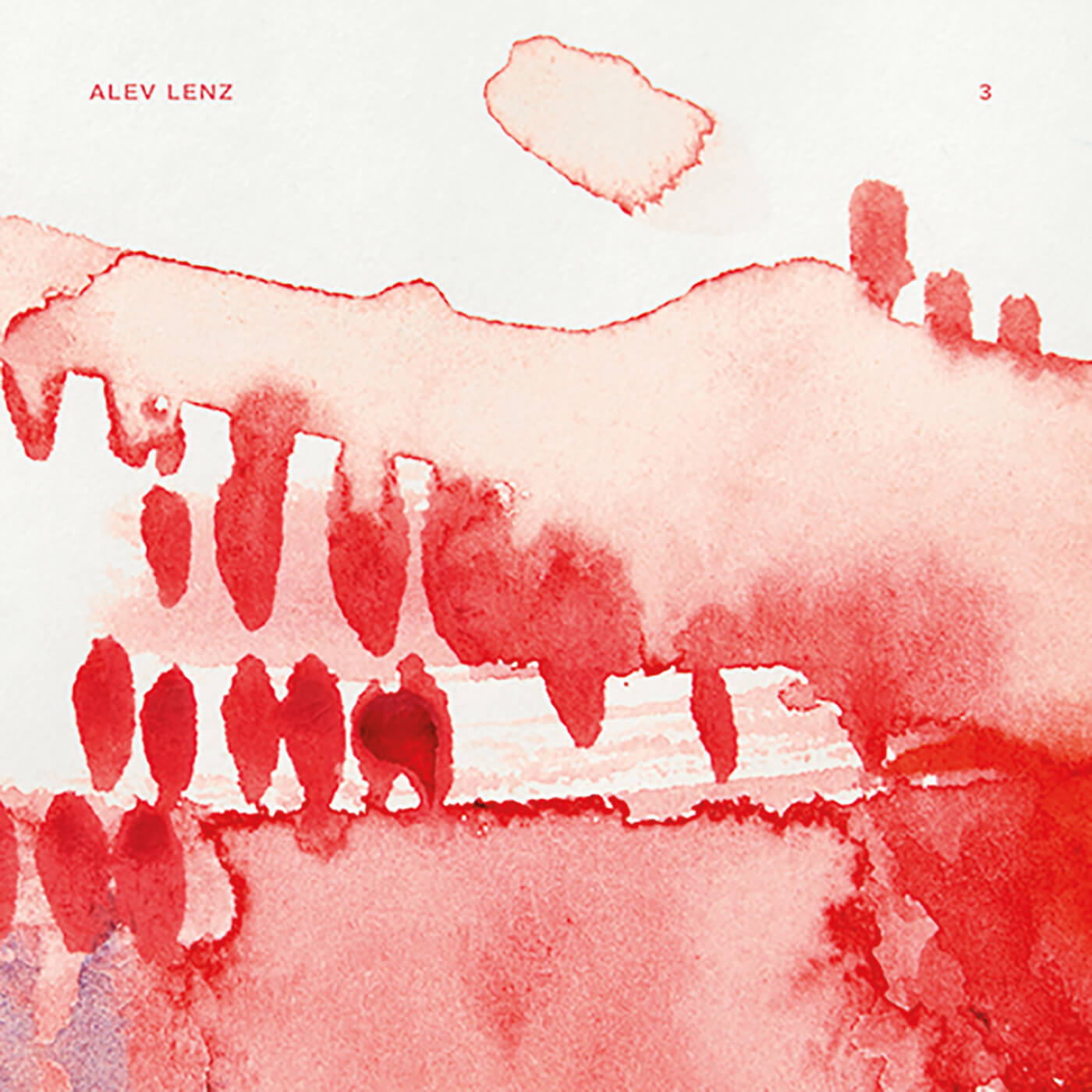
MT: So the new record 3 consists of textured, a capella vocal arrangements, what inspired this approach and how did your process differ in making a record that sounds this way?
AL: I didn’t start out knowing that I’d do it all a capella, but I do remember a conversation with Jas Shaw, who mixed this album, and he was suggesting I take this choir on board because he had just discovered them himself. I love doing harmonies and adding additional vocals. My voice is my main instrument. I had done pure vocal arrangements for a few tracks and it was really the easiest and least time-consuming thing I could do to get the songs finished. With some I didn’t even bother with any instruments, I just stood at the mic and got the vocals down and done. So in some respects, it was born out of not having too much time in the studio and trying to get more tracks locked down as fast as I could. I made all the noises and pads out of it. I even sang into my piano to create this really nice resonance, then used the Valhalla Vintage reverb plug-in.
It quickly gave me the depth of sound that I was looking for. Generally with every good, effective song you can take the top-line and perform it on any instrument on its own, and it should hold up. That’s the test. There’s so much room with these tracks, you could have added guitar, pianos or even string orchestras. But there was something so human and malleable about the vocal-only approach.
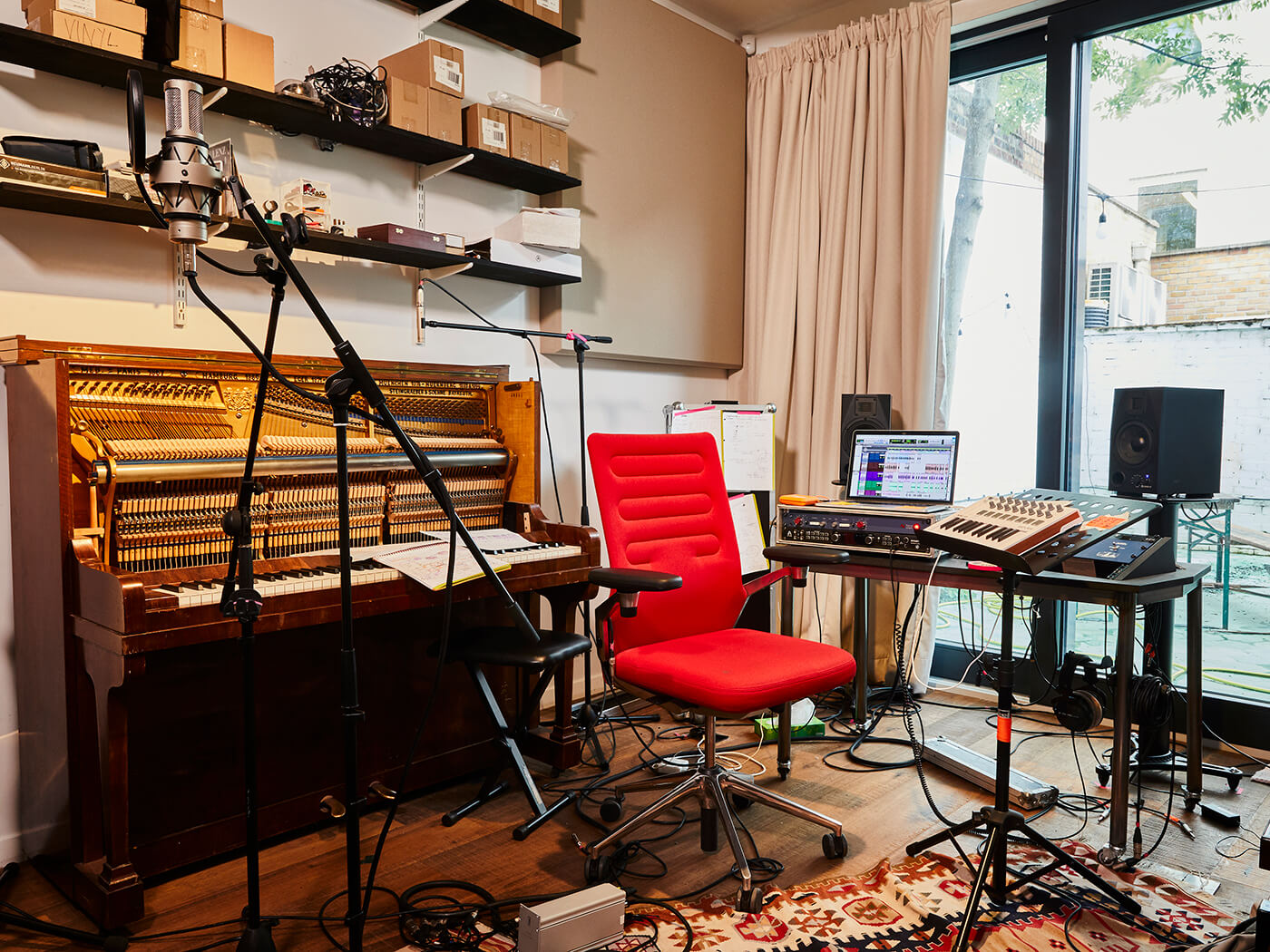
MT: At what point did you decide to co-release the sample collection that accompanies 3? And do you think this idea has the potential to revolutionise the industry?
AL: Yeah, I think we’ll see how this concept develops and whether it does represent a genuine game-changing idea. The idea isn’t entirely new – I remember, for example, when Nine Inch Nails released the stems for their songs a few years ago. Now of course we can do a lot more, with music production software being so flexible. I think this idea doesn’t make sense for every artist but SA Recordings has a much more cerebral approach than the traditional record label. They’re asking, ‘what is a composer?’. They come from Spitfire Audio of course, so they’ve worked alongside so many composers over the years. I think they’ve noticed that all these composers do have raw materials of their own, while also having a strong, individual sound and vision.
“Take any help you can get, there’s one life and one opportunity to be the artist that you want to be”
MT: Did you know you were going to be doing this when you started making the album?
AL: No. I went back after I’d recorded it. SA Recordings were interested in me as an artist and the fact that I had a very distinct sound. I was a user of Spitfire Audio products, which they were aware of, and they felt that I could add more to their roster. Their objective is to give people more options when it comes to making music.
I’m the first artist to have released an LP via SA Recordings in this way with an additional sample library. I was so on board with the idea straight away. There was a lot of real soul-searching that followed though. Of thinking what a sample library could be…
I first thought that I’d only put vocals on there and create a sample library of just Alev, which was the wrong way to go about it but I had to find that out. It was great to have that freedom but it was stressful knowing just how good Spitfire Audio are at what they do. But I fundamentally thought about those questions, ‘what is an album?’ and how does a sample library work in conjunction with an album? What I really like about this idea is that I could make another album with another sample library that sounded completely different to this.
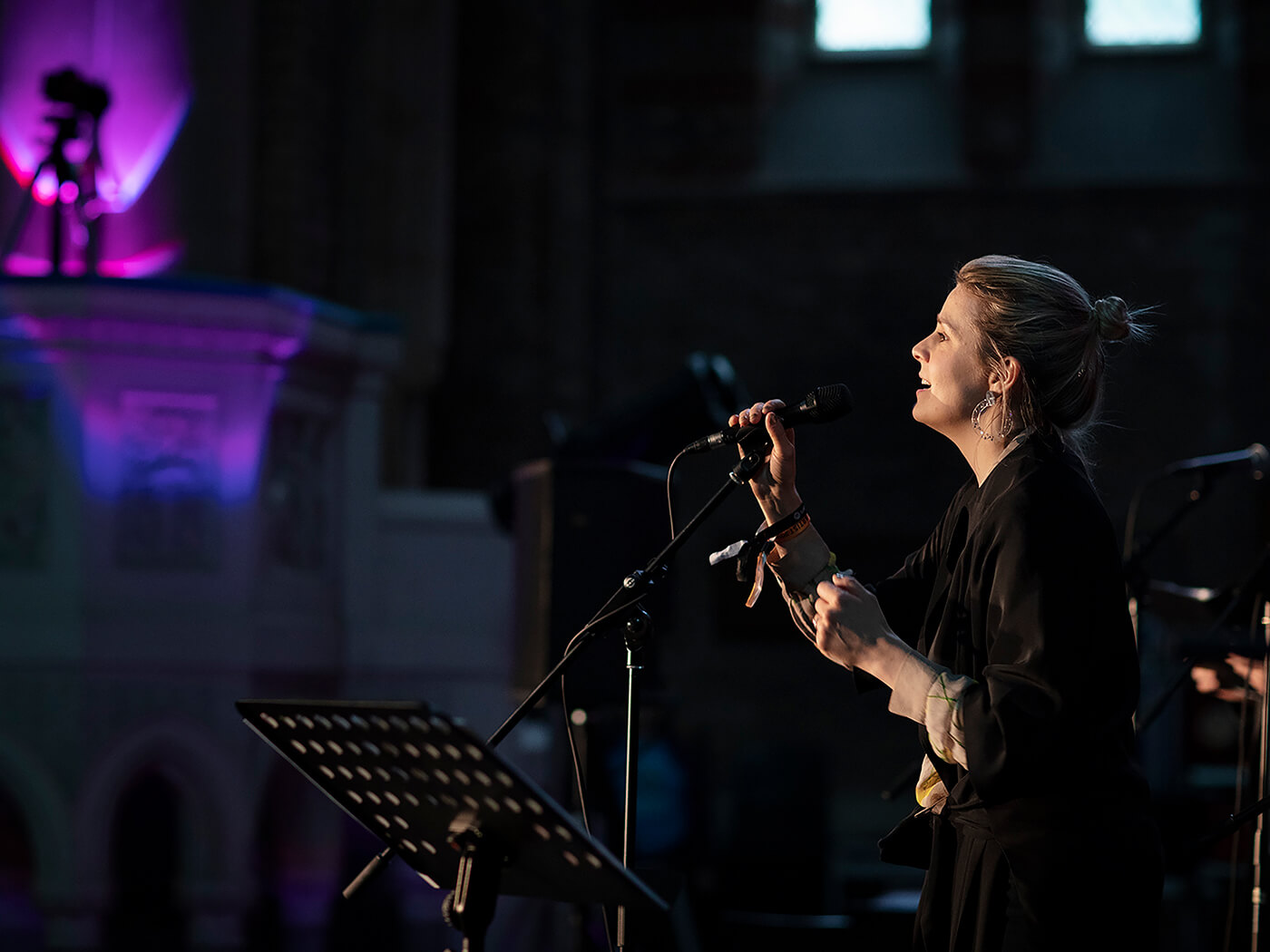
I went back to the drawing board a few times and realised that the samples have to really connect to the material on the album. They have to connect to what this material sounds like and also be flexible enough to be useable in a range of contexts. It was good that two of the songs on the album had already appeared on television shows (Dark and Black Mirror) Splendid Soldiers is a new version of the song that was first heard in Black Mirror (Fall Into Me, used in the episode Hated in the Nation) So I made sure that all the samples fit the ‘mood’ of this period of my songwriting.
It was a really satisfying process to create and curate these samples. I isolated the things that I thought were cool. I made the creative decisions – for example a vocal pad that isn’t playable across the entire keyboard, but just on specific mid-range notes. At the end of the day, that’s where I wrote it and that’s how it should exist.
The samples are based on vocals mainly, but all the stuff that was pulled out of the record. I was also writing my first full feature score at the time. Because it was happening at the same time I pulled some of the stems from there and made patches out of them that I needed for myself. I thought those things were super helpful so I included them too.
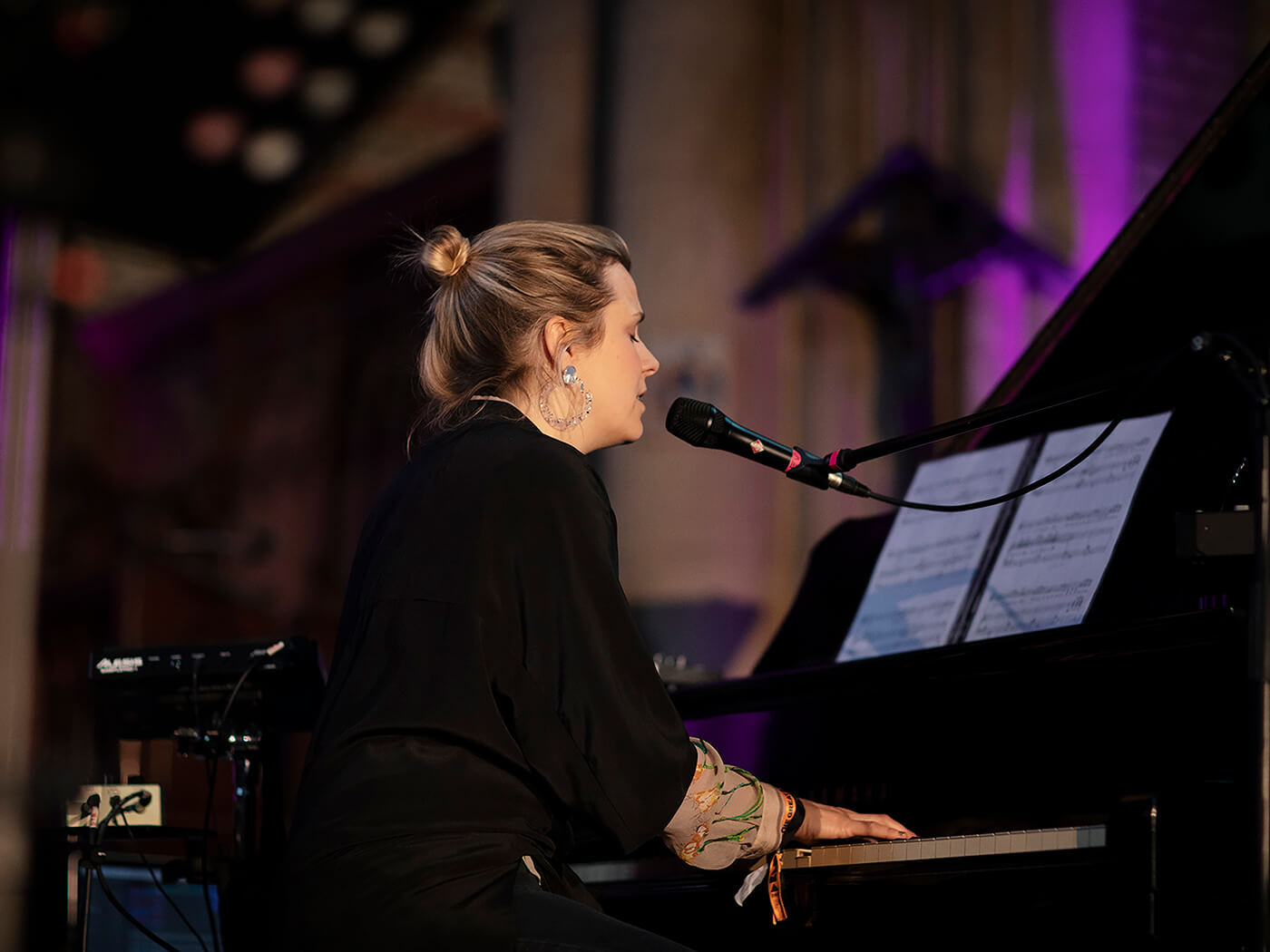
MT: Let’s turn to the recording from a technical perspective, could you talk us through the most pivotal tech and processes behind 3
AL: Well, my vocal chain is obviously pretty paramount to me, the vocals need to sound the best they can from the earliest possible point in the process. I have a purpose-built room for vocal recording in London.
I need a really clean vocal that the Brauner Phantom Classic gives me. I run this through a Neve preamp. I’ve tested lost of microphones and preamps with a friend and this combination worked perfectly for me. That’s the base of everything. The raw chain. I tend to also add some plug-in reverbs, but not really any compression. I know that whoever else I work with production-wise will want to approach it with their own tools and ideas so, I don’t really want to dictate what type of compression to use at an early stage. It also doesn’t really need much, because the chain is so good. I’m getting a Distressor and a Tube-Tech EQ because I want more hardware outboard gear.
My piano is also really important to me. I got it as a present from my parents when I was four. The piano itself is over a hundred years old. It’s beautiful. I tend to record it with Neumann microphones and again preamp that with the Neve.
I think in conclusion then – a clean signal is very much the important thing for me. Because then you can make the best thing out of it. Especially when you patch the vocals into malleable materials. Even when you stretch and granulate it, I do still think the soul of it sounds as good as it sounds due to the very, very clean signal. The room has to sound good, too. Everything else can just be added.
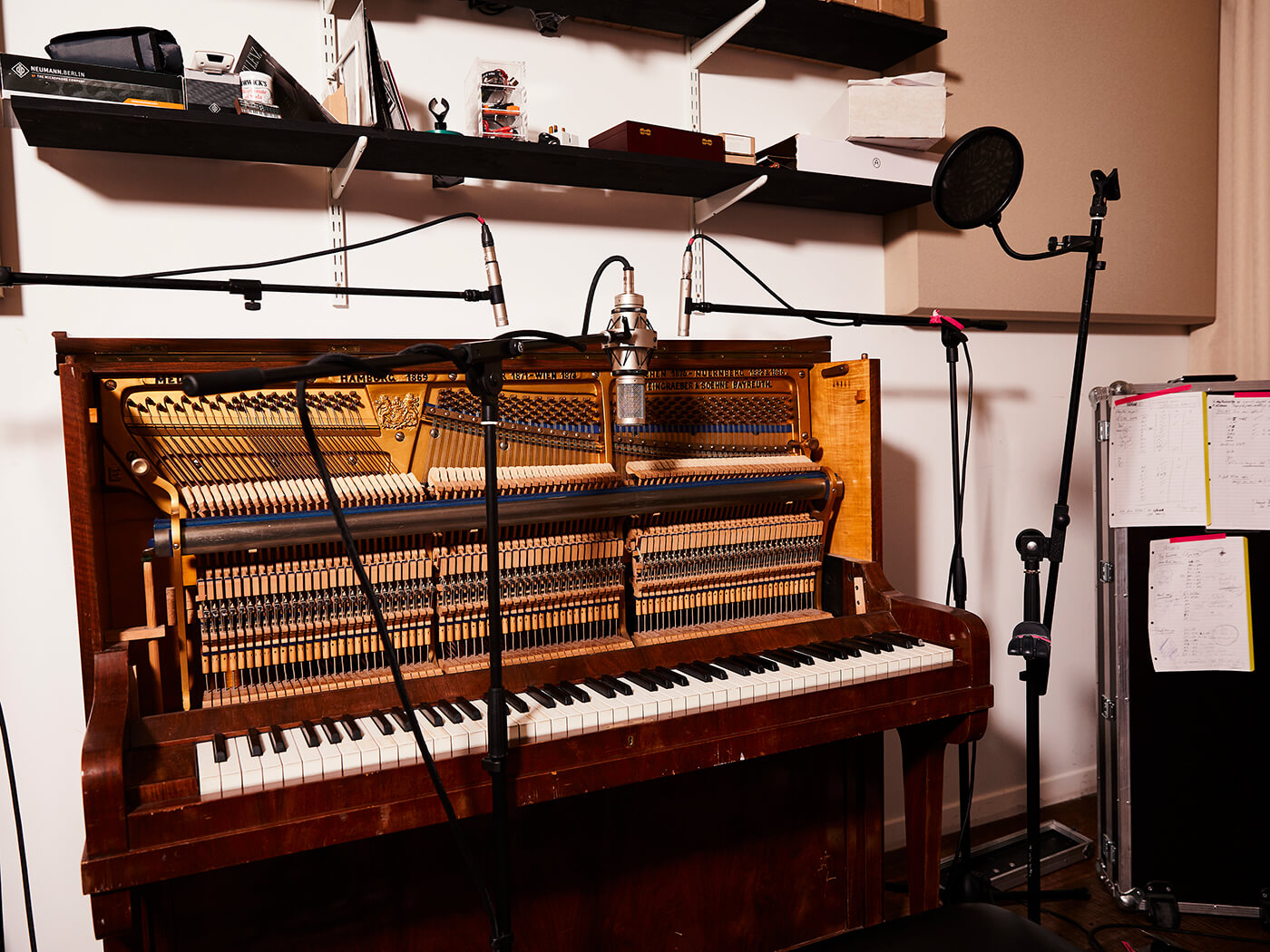
MT: How does soundtracking differ from composing in your own right?
AL: Well, what has been good in my career so far is to be very stubborn and to focus on driving my vision forward. Luckily, now when people approach me they want something that has my voice and my style, they’re asking me because they’ve heard my other works. Of course, sometimes it’s quite limiting, and I don’t have that flexible ability that many people who solely write to picture have, to be able to write exactly what is specified in the brief. So the process of me writing to picture isn’t all that different to writing my own music. It will come from the same space because people want it to come from the same space.
When I worked on the track for Black Mirror, Martin showed me the scene (featuring swarms of robotic killer bees) that I thought about and had to connect to me as an artist. I had to think about what the scene and the story was communicating and how I responded to that. We all have everything within us.
“A clean signal is very much the important thing for me”
MT: Speaking of Charlie Brooker’s terrifying visions of the future, how did that Black Mirror commission come about?
AL: The story I composed for was entitled Hated in the Nation and was part of the third season (but the very first season to stream exclusively on Netflix). Martin Phipps, who composed the soundtrack for that episode, came to one of my shows with a music supervisor. We were introduced and I, as a fan of the show, just said that if ever a singer was required for the soundtrack just let me know. A week later the team got in touch to say that they really needed a song for a pivotal scene and asked me to come into the studio. You pray that you’re ready for it!
I watched the scene and tried to be as open as I could. I was secretly singing into my phone some melodic ideas until I hit upon one that seemed to fit really well. I then took it away and wrote the music that became Fall Into Me. They loved it, and asked me to write an ending. I did that and submitted it. And then it was just done! It was so fast. They put some Cello on there to match it with the rest of the soundtrack so it had the same colour on it, but it was very quick. That song has become really popular for me, I think it was used really well.
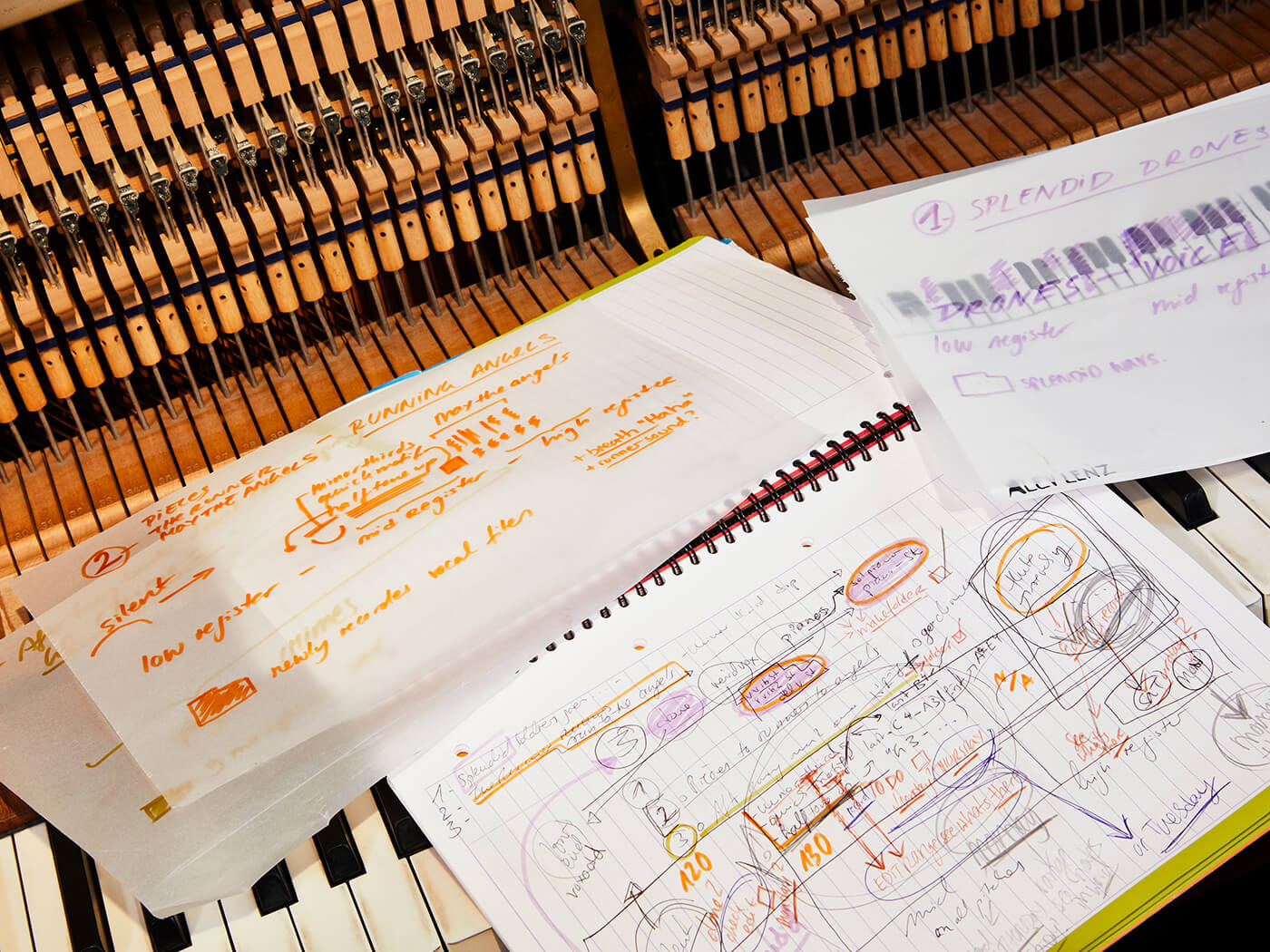
MT: There’s a lot of conversation right now about the difficulty to make a viable career in the industry, do you think soundtracking is perhaps a more stable route for musicians?
AL: I think going down the soundtracking route is certainly a viable option for artists, considering the current state of the industry. When my songs started to get synced on picture I started to see money, which was a big surprise. It was a reminder that someone still has a little bit of money, so that was great!
In comparison to touring or record sales/streaming, it was radically different. But I know so many composers who work their asses off trying to make a living. It changes shape. It’s always going to be difficult and it’s always more comfortable if you can get financial support from elsewhere.
When I moved to the UK I noticed that some people still go into the music industry with the aim of making money, I thought that was so different.
It wasn’t an immediate thing I realised I could do though. After my first album I got some songs synced and had various people contacting me. Slowly I started to realise that I could be involved in the soundtracking and sync world. I always loved movies and I love soundtracks. I love that more than I knew and it influenced me so much. So it all grew.
MT: Do you have any general advice to anyone looking to have a similar career to yours?
AL: I’m thinking about this question, it’s a year-long thought process to make a record for me. I would say don’t worry if it’s taking a long time to make something, often these things can take a while to come together. I had to throw a lot of my pride overboard to be an earning, functioning member of this society.
It’s a lot about what do you believe about yourself? What beliefs do others have about you and do you buy into them? Quite often the enemy of creativity comes from doubt based on what other people have said, and that’s quite self-defeating.
Also, take any help you can get, there’s one life and one opportunity to be the artist that you want to be.
To read more MusicTech interviews, head this way.